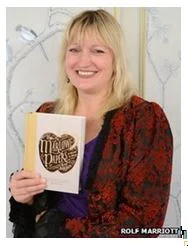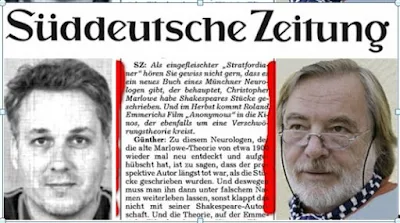Christopher Schmidt's impressive
circular reasoning
Christopher Schmidt, (he unexpectedly died in 2018) journalist of the arts section of the Süddeutsche Zeitung (SZ) was interviewed by the "
Deutsche Welle" on the occasion of the film "Anonymous" , as an expert on the
Shakespeare authorship question and
Shakespeare's education:
http://www.dw.de/popups/mediaplayer/contentId_6657337_mediaId(_15526504
Schmidt:[Translation]"...the learning of Shakespeare was quite sufficient to write these pieces, he was not learned "immeasurably" but he was just gifted with a boundless imagination ... and all other theories have also just considerable difficulties ...….
Therefore William Shakespeare from Stratford is still the safest candidate as author of the famous plays, even if he Possessed\ no academic education ...(11 Nov.2011)
Where did Christopher Schmidt get his knowledge of Shakespeare's education? Does he mean the person from Stratford, (no sources of [school] education do exist), or does he regard the education deducted from the author's plays? .... thus, from a poet who possessed (according to many experts) the most universal learning of his time? For Schmidt both must undoubtedly have been the same ....
Isn't this "vicious reasoning circle response" of Schmidt the most elegant solution, to get rid of the problem which was dealt in this show?
————————
VIDEOS – Complete Video Archive:OPEN —> Heading--> Home -->Videos -- Shorts -- Posts
->Popular





















